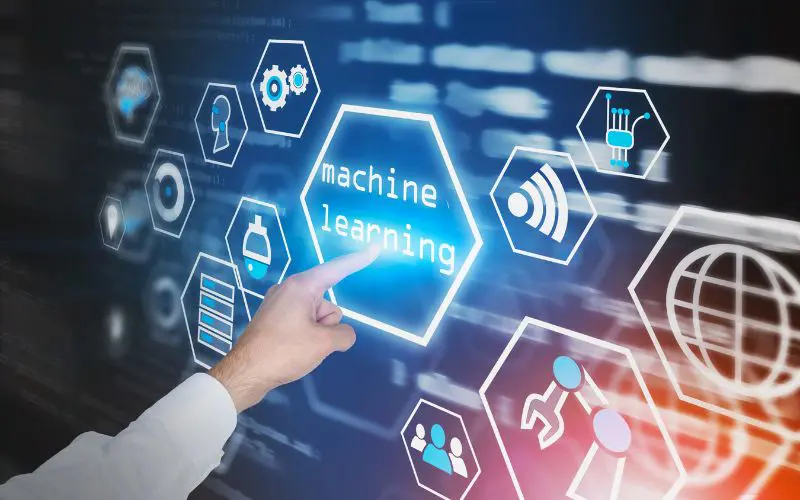Is AI Replacing Programmers?
The swift and significant development of artificial intelligence has generated an intense and heated discourse surrounding its ability to take over the role of human programmers. Although AI has made impressive advancements in code generation, it is important to acknowledge that the reality is far more nuanced.
AI's capacity to generate code is rooted in a complex process involving machine learning.
The systems are trained on vast code repositories, giving them exposure to a huge amount of programming patterns, structures, and algorithms. AI models learn to recognize common code patterns, understand programming logic, and comprehend the connections between various code elements, similar to how one would learn a language.
How is AI Able to Write Code?
A pivotal technique employed in this process is natural language processing (NLP). This enables AI systems to interpret and understand human language, allowing programmers to provide code instructions in plain text. For example, a programmer could explain how they want a specific section of code to work, and the AI would convert this instruction into code that can be executed.
In addition, machine learning algorithms play a central role. These algorithms improve the AI's coding capabilities by analyzing patterns and desired outcomes. This iterative process leads to continuous improvement in code quality and efficiency.
It's worth mentioning that even though AI can generate code, it often needs human involvement to fine-tune, optimize, and ensure that the code aligns with particular project requirements. The synergy between human creativity and AI efficiency is key to unlocking the full potential of this technology.

How Many Programmers Are Out There in the World?
It is challenging to accurately determine the worldwide count of programmers due to the diverse roles and skill levels they encompass. Nevertheless, it is estimated that there are millions of software developers worldwide. The sheer size of the talent pool emphasizes the complexity of the software development ecosystem and the challenges of using AI to replace such a large workforce.
The Limitations of AI in Coding
Even with significant progress, AI still faces significant obstacles in generating code.
One of the primary limitations is the lack of deep understanding of context and intent. While AI can generate code based on given prompts, it often struggles to grasp the underlying problem or the desired outcome accurately. This can lead to suboptimal or incorrect code solutions.
In addition, the effectiveness of AI models is influenced by the quality and quantity of the data they are trained on. If the training data is skewed or lacks necessary information, the resulting code may also have these limitations. This can result in code that is inefficient, error-prone, or even discriminatory.
Furthermore, AI models tend to excel in producing code for problems that are clearly defined and structured, but face challenges when it comes to complex, unclear, or new tasks that necessitate human ingenuity and intuition.
Another critical limitation is the absence of common sense reasoning. When it comes to problem-solving, AI systems fall short in their ability to incorporate real-world knowledge and understanding. It can hinder their ability to create code that is both robust, efficient, and easy to maintain. Besides, code produced by AI can have quality problems, including potential bugs, vulnerabilities, and suboptimal performance. Rigorous testing and human code review are essential to mitigate these risks.
In essence, while AI is a valuable tool for programmers, it cannot quite replace human expertise. The complexity and nuance of software development often demand a level of understanding and creativity that exceeds the current capabilities of AI.
Real Use Cases of AI in Coding and Software Development
Despite its limitations, AI has found valuable applications in software development. Repetitive tasks like generating code, testing, and debugging can be automated. Programmers can also benefit from AI-powered tools that assist with code completion, providing suggestions for potential solutions or code snippets. Also, AI can be used for code analysis to identify potential errors, vulnerabilities, or performance bottlenecks.
The Impact on Testing, Code Review, and Optimizations
AI can revolutionize testing and code review processes. By automating test case generation and execution, AI can improve test coverage and efficiency. Similarly, AI-powered code review tools can analyze code for potential issues, suggesting improvements and enforcing coding standards.
In terms of optimization, AI can identify performance bottlenecks and recommend code refactoring, leading to more efficient and scalable applications.
How the Future Might Look Like
The future of software development is likely to involve a synergistic relationship between humans and AI. While AI will automate routine tasks and augment programmer capabilities, human creativity, problem-solving, and critical thinking will remain indispensable.
While AI takes care of the repetitive tasks in development, programmers can concentrate on higher-level design, architecture, and solving complex problems.
Final Words
The idea that AI will completely take over the role of programmers is premature. While AI has made remarkable strides, it still requires human developers to effectively utilize its capabilities. The future lies in collaboration between humans and AI, where each brings unique strengths to the table. By understanding the limitations and potential of AI, the software development industry can embrace this technology to enhance productivity and innovation.
It's essential to view AI as a complement, not a replacement, for human programmers. By working together, humans and AI can create even more remarkable software solutions.